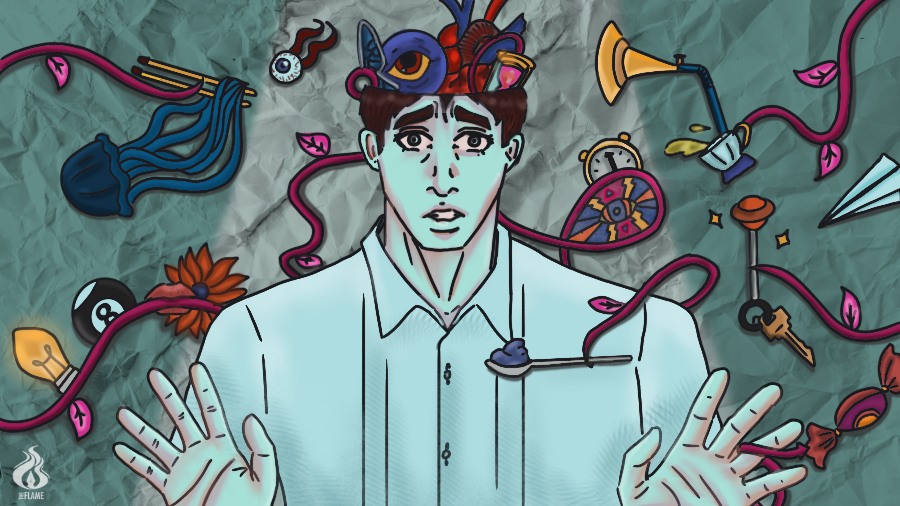
DESPITE THE bumpy road, Matthew Opeña has long accepted his situation.
Opeña’s condition presented when he had to explain his inversive actions and how his pace was not as linear as his peers.
At an early age, Opeña was diagnosed with Attention Deficit Hyperactivity Disorder (ADHD).
His whole family migrated to Canada years after being diagnosed. Living in an unfamiliar landscape, he had no choice but to adjust his mental condition and lifestyle to a foreign culture.
Growing up with ADHD, he narrated how his desire for self-gratification made him act out of impulse so that he could actually quench his thirst for constant dopamine.
Opeña said, “Living with it is actually difficult because I am always eager to get something done quickly and sometimes no matter what actions I do, it’s not fulfilling at all.”
Now at 19, Opeña underwent mishaps and endured what it feels like to have ADHD as an extroverted teenager who just wanted to live his life to the fullest it could possibly be.
Bag of discrepancies
As determined by Dee, people with ADHD are frequently interpreted differently due to intensive behavior and rapid shift of focus
“Usually the misconception is that they are hyper (energetic) and lack self-control. They are viewed as students who perform poorly at school,” Professor Eunica Dee told The Flame.
Assistant Professor Eunica Dee, a graduate of AB in Behavioral Science at the University and now teaches at National University-Laguna explained some pertinent patterns to better understand the patients.
“Another misconception is that they act up whenever they feel depressed or anxious,” Dee added. “They impose facetious actions as an excuse.”
Meanwhile, Opeña said that living with ADHD is “difficult” because he’s always eager to finish tasks quickly but fails to do so.
As mentioned by Dee, ADHD is prevalent because humans adapt continuously to society’s development, and it can genetically influence the environment.
She added that Filipinos are more conscious about their mental health, hence the transgression it creates.
Assessment Corner
According to Dee, generating an interpretation of their condition would stipulate awareness as it creates a clear assessment and clinical interventions.
“Assessment is very important [because] it provides… definite diagnosis for the client and runs a better dynamic to scrutinize their needs, drive, and wants,” Dee explained.
Opeña consulted with a child psychiatrist and received therapy. Eventually, positive results appeared as he could function more comfortably in his daily life.
Dee assured that consultation does not always connote abnormality, relaying that not all her clients seeking therapy are in dire need of mental guidance.
Constant Reminders
Mental health awareness month carves a platform to show the realities beyond the optic’s view, but it should not connote that there is only a time period in caring about mental health.
“No matter how many webinars we (mental health professionals) conduct, if the society around us is still not accepting these things as part of the reality, then there will always be a stigma,” Dee reminded.
Dee, along with her friends, established a non-government organization called “Juan for Mental Health” with the objective of teaching acceptance in attempts to create an inclusive world.
“Learn to accept things so that we can heal as a community,” Dee said.
As explained by Professor Dee, in embracing the reality of neurodivergence, there are four D’s of Abnormality in psychology to keep in mind: Deviance, Distress, Dysfunction, and Danger. If these signs become visible, then intervention must be done.
“We have to realize what is really happening within us so that we can come up with a resolution,” Dee said.
Dee explained that listening and making people feel that they are not alone is already a big support. She also emphasized that empathic listening is an unconditional positive regard that a person would not be judged.
She said that taking time, patience, empathy, and kindness “would save the world.”
Asked about her message to her fellow Artlets, the professor said, “I challenge my fellow artlets. Your perception of the world will actually change how you intervene and how you will take the course through it.” F – M.I Fery



